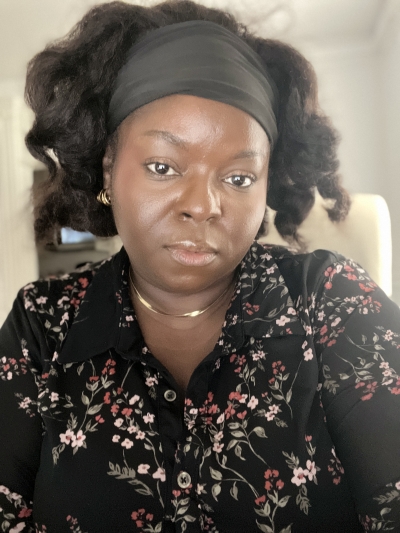
In this series, we speak with professors who lead different sections of the Core Curriculum to learn what they love about engaging with College students. This month we chat about Music Hum with Ruth Opara, assistant professor of music. Opara’s research focuses on African and African diasporic music and knowledge production; she has been teaching in the Core Curriculum for two years, first as a Melon Postdoctoral Fellow and then as an assistant professor.
What is the best part about teaching the Core Curriculum?
I love building relationships with the students, both inside the classroom and out. It’s also been really rewarding to teach students who are not music majors — people experience music differently, and some of them haven’t even heard some of the music we analyze in class. So introducing them to music, talking to them about it, watching them react to it and then hearing their diverse perspectives are the things that make me very happy.
How do you bring your own spin to teaching Music Hum?
I start teaching students by giving them theoretical frameworks — how they can analyze music even if they’re not familiar with it. I like to acknowledge the students’ strengths and give them agency. Sometimes they come into this class quite scared, because they hear “It’s classical music,” or think “Oh, it’s something that we don’t listen to every day.” So one of the things I do is try to tie things that we learn in class to what they experience every day musically. Because the pieces we analyze are actually popular — not “popular” as in popular music, but as in well known around the world, people like Mozart or Beethoven. I try to bring in the many ways that that music has been incorporated into things the students can relate to. For example, Beyonce’s new album sampled the Italian song “Caro Mio Ben” [an aria composed in 1783]. A lot of the songs that we talk about in class have been similarly sampled in popular music.
I also like to explore themes. We use a central syllabus, but we are also given room to explore topics of interest. So usually I use that time to introduce the students to Art Music in Africa, because I teach African music and the African diaspora.
What are you teaching that feels especially relevant for this year?
If I were teaching a class today, I would introduce Art music that explores the intersection of music and peace building in the world, because that’s what I’m advocating right now — world peace.
What has been your favorite Music Hum teaching moment?
When students begin to use the things they’ve learned in class. At some point in the semester, they begin to find things for themselves — even before we start talking about a lesson, they’ll be like, “Oh, I hear those motifs. I hear those musical ideas.” And then they begin to compare it to something else they have listened to. So when I hear someone say, “Oh, Eminem or Drake did something like that motif,” that really makes me happy! I don’t really emphasize my students just cramming information; I want them to be able to talk about music, I want them to go out in the world and when they hear music, they can do those in-depth analyses beyond what every other listener is doing. When they begin to do that in class, it makes me so happy. So it’s not just one moment; it’s multiple moments.